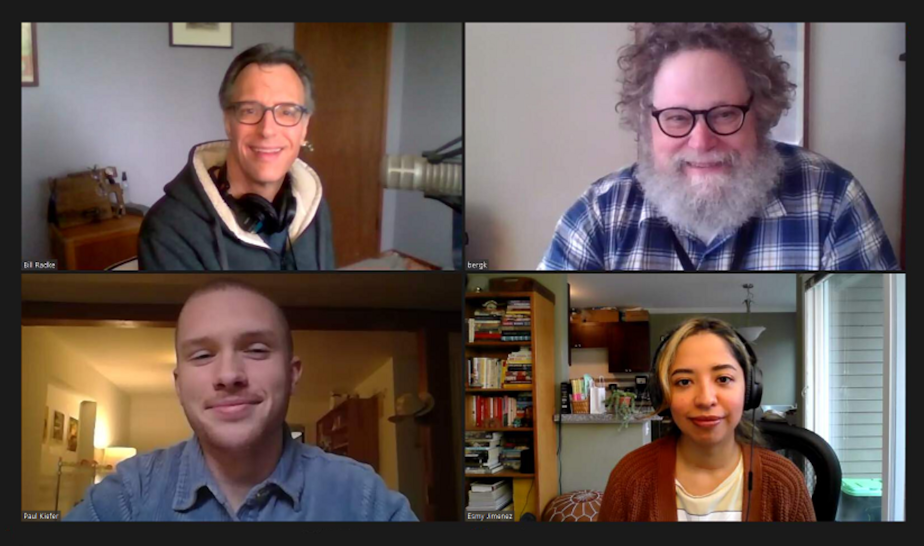An upcoming election, pay requirement, and holiday, this week

Bill Radke reviews the week's news with Seattle Times mental health reporter Esmy Jimenez, Publicola police accountability reporter Paul Keifer, and Crosscut editor at large and host of the Mossback's Northwest, Knute Berger.
Seattle’s city elections are set to tally this Tuesday. At the center of this year’s elections is what seems to be a lot of doom and gloom -- struggling business downtown, a rampant homelessness problem, and the fragile state of pandemic recovery in the region. Maybe it’s a little old fashioned, but whatever happened to optimism as a selling point for politicians? Is sunny optimism in politics a privileged piece of the past, or is it something we still want?
In other political news, the Biden administration has named Washington Secretary of State Kim Wyman to an election-security post in the Department of Homeland Security. Like many Secretary of States before her Wyman is a Republican, and has been a key supporter of voting by mail -- a political position that’s become more fraught for conservatives in the fallout of the 2020 election. Who will take her place here in Washington?
You might remember that back in May of this year Seattle Inspector General Lisa Judge sent a letter to Interim Police Chief Adrian Diaz asking SPD to eliminate traffic stops for minor civil and non-violent violations. In the letter, Judge wrote that “Stopping a person is a significant infringement on civil liberty and should be reserved for instances when a person is engaged in criminal conduct that harms others.” This week Diaz sent a memo to the city council and Mayor Durkan agreeing to phase out the stops. How will this decision change police work in Seattle?
Speaking of the Seattle Police Department, earlier this month the Seattle city council passed a resolution that asks Seattle cops to make enforcement of entheogens, aka psychedelic drugs, their lowest priority. The Seattle Police Department already doesn't detain or arrest people solely for possession, but you can still get in trouble for growing your own entheogens, or possession if you’re already in trouble for something else. A resolution isn't legally binding, so it's up to the police department to decide if they want to phase out enforcement. But that doesn’t mean psychedelic companies are waiting to get started - according to Geekwire, CaaMTech, a Seattle-area startup developing new psychedelic agents, recently raised $22 million in funding. What could the roll out of legal entheogens look like?
In Covid vaccine news, the Eatonville school district has refused to fire non-compliant workers, a position that could result in a drop in funding. And Florida Governor Ron DeSantis has announced that Seattle officers who were let go over vaccine status are welcome in Florida, and is looking to sign legislation that would provide $5,000 bonuses to officers who elect to move. How big a deal is this pushback? Will we see school employees and police officers flocking to Eatonville or Florida?
Sponsored
On Wednesday a federal jury determined that the for-profit firm that operates the Northwest ICE Processing Center in Tacoma violated Washington's minimum wage laws by paying detainees only $1 per day for their labor. The jury ruled that the firm in charge of the center, GEO Group Inc, will need to begin paying all workers the state's $13.69 hourly minimum wage immediately. What will this mean for current and former detainees?
Finally, Monday November first is Dia de los Muertos, a holiday for celebrating and honoring the dead. Traditionally, celebrations involve making an ofrenda — an offering that features a photo of the person being remembered, candles, food, cempasúchiles (marigolds), papel picado and calaveras (sugar skulls). But with the pandemic, things might look a little different. For example, the LA Times has created a digital Dia de los Muertos alter, for anyone to contribute to. What does mourning, and remembrance, look like now? Can the digital world be a good mourning space, or a good space for celebrating life?






